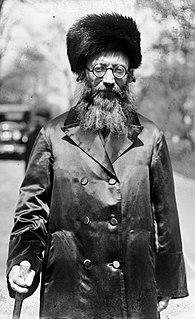A Quote by Denis Diderot
What a hell of an economic system! Some are replete with everything while others, whose stomachs are no less demanding, whose hunger is just as recurrent, have nothing to bite on. The worst of it is the constrained posture need puts you in. The needy man does not walk like the rest; he skips, slithers, twists, crawls.
Related Quotes
When you write, it’s like braiding your hair. Taking a handful of coarse unruly strands and attempting to bring them unity. Your fingers have still not perfected the task. Some of the braids are long, others are short. Some are thick, others are thin. Some are heavy. Others are light. Like the diverse women of your family. Those whose fables and metaphors, whose similes and soliloquies, whose diction and je ne sais quoi daily slip into your survival soup, by way of their fingers.
Who were my mentors in poetry and literature? This is a matter of opinion. Some see in my books the influences of authors whose names, in my ignorance, I have not even heard, while others see the influences of poets whose names I have heard but whose writings I have not read. And what is my opinion? From whom did I receive nurture? Not every man remembers the name of the cow which supplied him with each drop of milk he has drunk.
Superstition, in all times and among all nations, is the fear of a spirit whose passions are those of a man, whose acts are the acts of a man; who is present in some places, not in others; who makes no places holy and not others; who is kind to one person, unkind to another; who is pleased or angry according to the degree of attention you pay him, or praise you refuse to him; who is hostile generally to human pleasure, but may be bribed by sacrifice of a part of that pleasure into permitting the rest. This, whatever form of faith it colors, is the essence of superstition.
... when death has been brought upon a saint, we ought not to think that an evil has happened to him but a thing indifferent; which is an evil to a wicked man, while to the good it is rest and freedom from evils. 'For death is rest to a man whose way is hidden' (Job 3:23 LXX). And so a good man does not suffer any loss from it.
People forgot that industry is not an end in itself, but should be only a means to insure to man his material subsistence and to make accessible to him the blessings of a higher intellectual culture. Where industry is everything and man is nothing begins the realm of a ruthless economic despotism whose workings are no less disastrous than those of any political despotism.
When I spoke at the St. Lawrence Seaway ceremonies in 1969, I borrowed some words from the monument there which I had joined Queen Elizabeth in dedicating just 10 years before. That monument, as its inscription puts it, 'bears witness to the common purpose of two nations whose frontiers are the frontiers of friendship, whose ways are the ways of freedom, whose works are the works of peace'.
If a legislator is safe from competition, or if he represents groups with the same economic and political beliefs, he does not have to change his ideas or respond to the needs of the broader population. He can rest content with a mediocre, absentee performance knowing he will be returned to office. And as he is returned year after year the seniority system gives him immense control over people from other parts of the country whose views he need not heed at all.
Friends now fast sworn,
Whose double bosoms seems to wear one heart,
Whose hours, whose bed, whose meal and exercise
Are still together, who twin, as 'twere, in love,
Unseparable, shall within this hour,
On a dissension of a doit, break out
To bitterest enmity; so fellest foes,
Whose passions and whose plots have broke their sleep
To take the one the other, by some chance,
Some trick not worth an egg, shall grow dear friends
And interjoin their issues.
When someone tells a man to be a man, they mean that there is a way to be a man. A man is not just a thing to be-it is also a way to be, a path to follow and a way to walk. Some try to make manhood mean everything. Others believe that it means nothing at all. Being good at being a man can't mean everything, and it has always meant something.




































